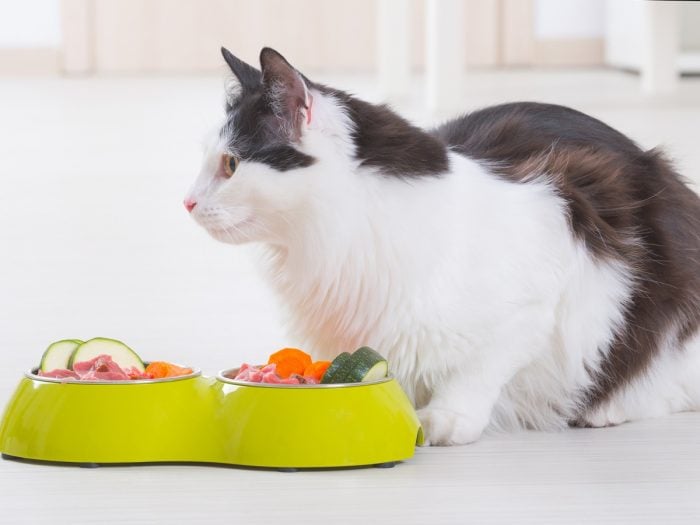When we’re taking care of our feline friends, it is important to keep them safe, but many people are curious about whether or not cats can eat carrots? They are good for humans, but do those same nutritional benefits extend to cats?
Carrots, scientifically a part of the Umbelliferae family, are one of the most popular vegetables on the market, and they are probably in your kitchen right now. The long orange taproots of this vegetable are what most people enjoy eating the most, although the green leaves that remain aboveground are also popular salad greens in some parts of the world. [1]
The crunchy texture and pleasant taste of carrots have made them incredibly useful in culinary applications and can be eaten both cooked or raw. Although most carrots are the traditional orange color, there are some varieties that come in white, red, purple and yellow. They have been cultivated for more than 500 years, are relatively inexpensive, and are packed with nutrients.
Humans and Carrots
Carrots are rich sources of carotenoids and more than 100% of your daily vitamin A requirements in a single serving. They are also excellent sources of other vitamins and minerals, including vitamin K, vitamin C, B-family vitamins, potassium, manganese, and copper, as well as dietary fiber. There are no toxins found in this vegetable either, so they pose a very little risk to our health, and allergies to carrots are quite rare. Given all of that information, they are clearly good for humans, but is the same thing true for cats? [2]
Cats and Carrots
It’s only natural for your cats to be curious about what you’re eating, but there are plenty of things that cats can’t eat, so it’s always wise to check before letting your kitten snack off your plate. When it comes to carrots, you don’t have to worry about your cats eating them, as they are not toxic or dangerous to cats. However, most people recommend only feeding cats cooked carrots, since the raw form can be very crunchy, making it difficult for cats to chew and digest the fibrous vegetable.

Carrots are not toxic to cats. Photo Credit: Shutterstock
Immunity
Not only are carrots good for cats, but these popular vegetables can actually give your feline companion a healthy boost to their own system. Most people associate eating carrots with improved vision, due to the high levels of carotenoids present in this vegetable. Just like in humans, the beta-carotene found in these vegetables is transported to the liver, where it is turned into vitamin A, a powerful antioxidant compound. However, cats are only able to convert small amounts of beta-carotene into vitamin A, unlike humans. They will store that vitamin for growth and cell reproduction, so carrots are particularly good to give kittens or younger cats while they are still growing. [3]
Vision
Although cats do have a superb vision – and can even see in the dark – they still require vitamin A to be healthy. By adding the occasional carrot to their diet (or buying a cat food that includes this vegetable), you can ensure that your cat’s super-vision stays just as strong. In humans, high concentrations of vitamin A can help to improve vision or even clear up macular degeneration or cataracts, the same isn’t true for cats, due to their low conversion rate of beta-carotene. If your cat is suffering from cataracts of glaucoma, adding some shaved carrots to their daily diet isn’t likely to do much in the way of treatment. [4]
Digestion
The fiber content found in these vegetables can also be good for your cat’s digestion, just as it improves the digestion in us! Small shaved carrots in your cat’s wet food or a few cooked pieces of carrot can go a long way towards improving your cat’s gastrointestinal function. [5]
At the end of the day, there is no harm in feeding your cats carrots, but like any type of “human” food that you give your pets, always do so in moderation!
